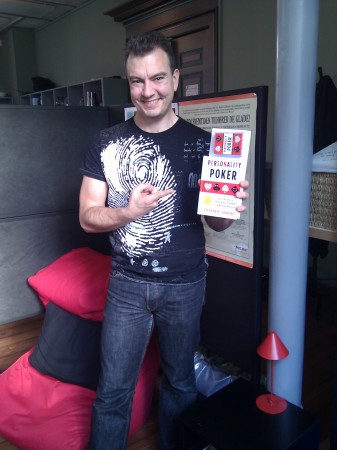I recently blogged about the value of nice bosses and why being nice, considerate and empathetic can actually be quite a challenge for managers. Basically, nice managers are much more likely to make their employees happy and nice managers get better results. However, some forces in business and psychology conspire to make bosses less nice than the could be. Read the article here.
In the latest edition of our newsletter (read more and sign up here), we launched a survey to get a feel for the level of niceness currently found among managers:

The survey only has 5 questions and takes about a minute to do – you can really help us out by taking it here.
So far, the results are… interesting.
First question was: Is your boss nice. Fortunately, it seems that most are:

76% say their boss is mostly or always nice. The pattern repeats when we ask about most managers in the organizations:

So far so good. But here comes the interesting part. Compare these two questions:


94% of you say that having a nice manager matters to you (88% even say it matters a lot) yet 72% of you say that being nice is not a required trait of managers in your organization. That is a major disconnect right there. I think we need to make many more workplaces realize that being nice is not just nice – it should be an absolute requirement for anyone in a management position.
This is reflected in many of the comments on the survey:
I’m lucky to work for a very nice boss right now, but I have worked for miserable bosses in the past. These miserable bosses breed miserable teams and employees. It was such a relief when a miserable boss left the company – a collective sigh of relief from employees.
Ouch!
I’ve often wondered if it’s the job that makes a director/manager into Uncle Joe Stalin or if they were that way to start with. Does anyone have an answer to that question?
I wrote about this in my original blogpost about nice managers. Being given power tends to do some bad things to us. So some managers are born Stalins, others go Stalin as a result of becoming managers.
It is so unfortunate how my boss is disrespectful to myself and others and how she gets away with it. She’s nice to those above her and behaves however she feels like it to the rest of the people below her. I just started this new job in June and am already looking to leave. It’s very unhealthy to be in such an environment. It’s too bad that the crappy bosses never get sought out and fired or, at the very least, reprimanded.
Double ouch!
People get ahead here regardless of whether or not they are nice. It is very discouraging. Nice guys get laid off. And they wonder why morale is poor.
Ouchouchouch!
But this comment takes the cake:
We seem to be naturally selecting for jerks – aggressive win-at-all-costs tyrants. Sad really. So much potential and people just end up checking out.
This is precisely what we need to avoid. Remember that people tend to hire in their own image – so nice managers hire nice people and jerks hire jerks.
Your take
Is niceness a trait you want to see in your boss? Who’s the nicest boss you’ve ever had? Or the nastiest? What did he or she do? What did that do to you and your colleagues? Please write a comment, I’d love to know your take.
Related reading














